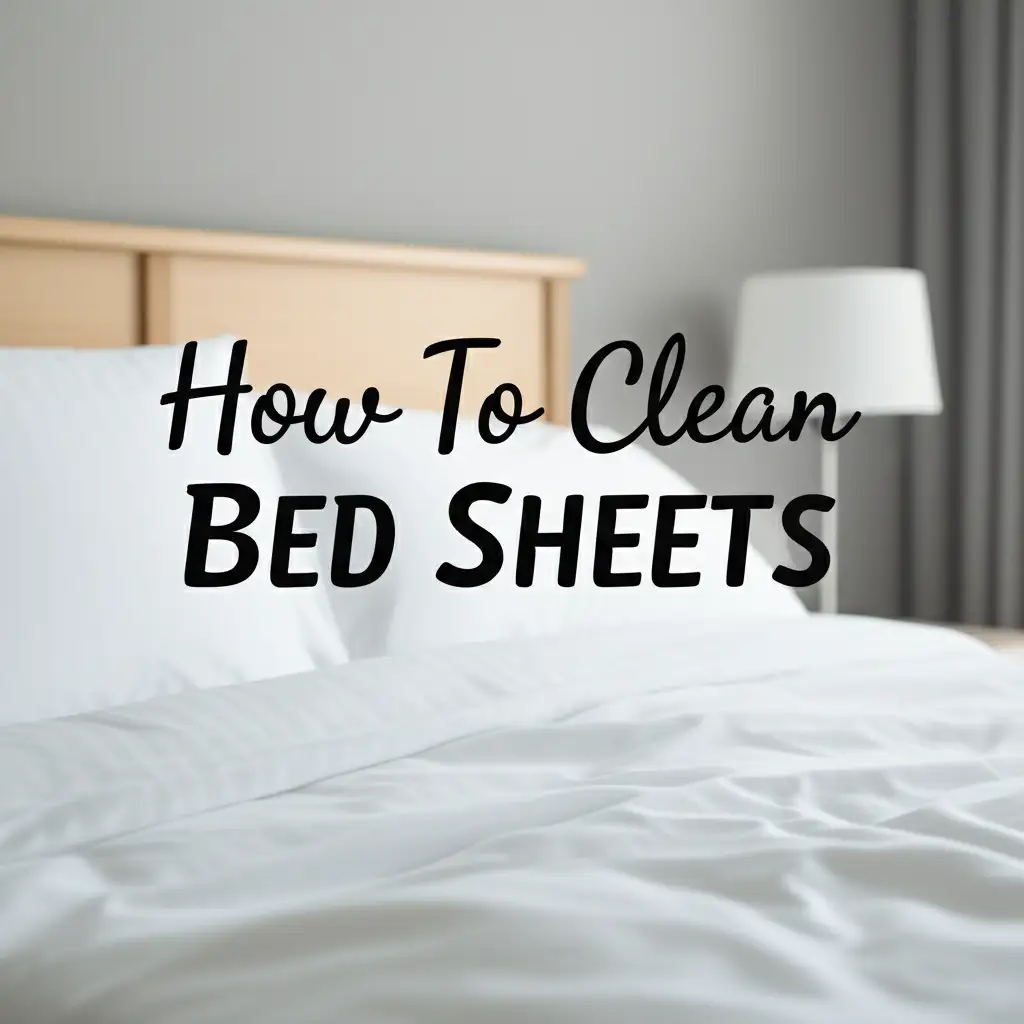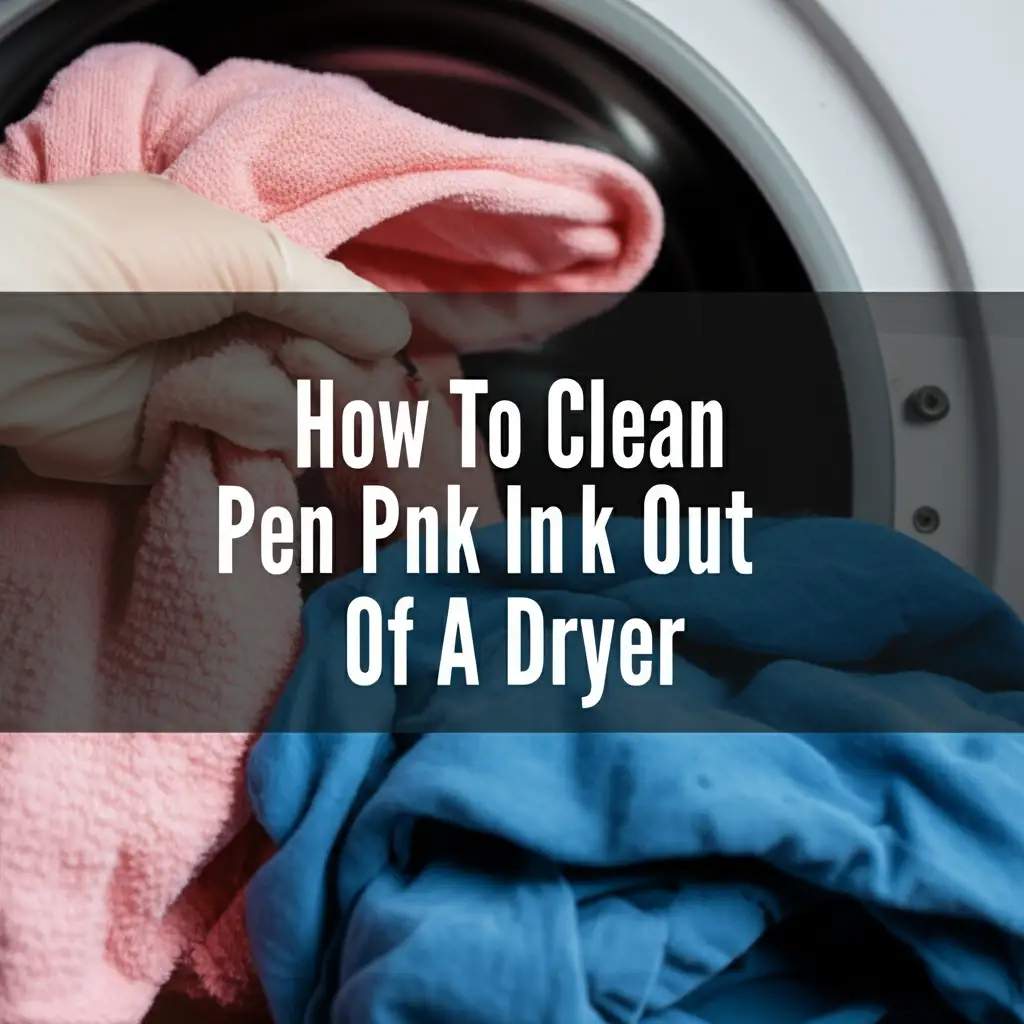· Laundry Care · 14 min read
How To Clean Bed Sheets

How To Clean Bed Sheets: Your Essential Guide
There is nothing quite like slipping into a bed made with freshly cleaned sheets. This simple act brings comfort and peace. Many people wonder how to clean bed sheets the best way. Cleaning bed sheets properly makes them last longer and keeps your sleeping area healthy. A dirty bed can cause skin issues or trigger allergies. I have found that a good sheet cleaning routine truly improves my sleep quality. This guide will show you everything you need to know. We will cover washing steps, stain treatment, and how to keep your sheets soft.
Takeaway
- Wash sheets weekly for hygiene and freshness.
- Sort sheets by color and fabric type before washing.
- Pre-treat stains promptly to prevent them from setting.
- Use the right water temperature and detergent for your sheet material.
- Dry sheets fully to prevent mildew and odors.
To clean bed sheets, you should wash them in warm water with a gentle detergent weekly, pre-treating any stains, and then tumble dry on a low setting or air dry them. This keeps sheets fresh, hygienic, and extends their life, ensuring a comfortable sleep environment.
Why Cleaning Your Bed Sheets Matters
Cleaning your bed sheets is more important than you might think. Your sheets collect a lot more than just dust. Every night, your body sheds skin cells, sweat, and oils onto your bedding. These things build up over time. If you do not wash your sheets, this buildup creates a home for dust mites. These tiny creatures can cause allergies and asthma.
A clean bed helps you sleep better. When your sheets feel fresh, you feel more comfortable. This comfort makes it easier to relax and fall asleep. Dirty sheets can feel rough and smell stale, making sleep difficult. I know I sleep soundly when my bed is clean. Regular cleaning also helps your sheets last longer. Dirt and oils can break down fabric fibers. This makes sheets wear out faster. Washing them regularly protects the fabric. It keeps your sheets soft and strong for many years.
How Often Should You Wash Bed Sheets?
The frequency of washing bed sheets depends on several factors. Most experts suggest washing bed sheets at least once a week. This is a good rule for most households. If you or someone in your bed has allergies or asthma, you might want to wash them more often. I wash my sheets every five to seven days. This helps control dust mites and keeps my allergies in check.
There are situations when you should wash sheets more frequently. If you sweat a lot at night, daily or every other day might be best. If you have pets that sleep in your bed, pet dander and hair build up fast. Washing sheets every 3-4 days can help. If someone in the bed is sick, wash the sheets daily. This prevents the spread of germs. Also, if you eat or drink in bed, spills need immediate cleaning. This prevents stains from setting. Remember, regular washing keeps your bed fresh and healthy. It promotes a cleaner living space overall. You can even find tips on how to clean other areas near your bed, like how to clean under your bed, to maintain a truly clean sleeping area.
Preparing Your Sheets: Essential Pre-Washing Steps
Before you toss your sheets into the washing machine, take a few moments for some important prep work. These steps make a big difference in how clean your sheets get. First, always remove pillowcases and duvet covers from your pillows and duvets. This lets everything move freely in the wash. Next, shake out your sheets. This removes any loose dirt, crumbs, or pet hair. I always shake mine outdoors if possible. This keeps the debris out of my house.
The next step is sorting your laundry. Never wash dark-colored sheets with light ones. Dyes can bleed and stain lighter fabrics. Separate delicate fabrics, like silk or linen, from sturdy cottons. This protects delicate materials from damage. Check for any stains. Stains need special attention before washing. Pre-treating stains stops them from becoming permanent. Look for common stains like blood, food, or makeup. Treating them quickly is key. For example, knowing how to clean blood off sheets effectively requires immediate action with cold water and a stain remover. These small actions make your bed sheets look their best after washing.
Choosing the Right Detergent and Water Temperature
Selecting the correct detergent and water temperature is very important for cleaning bed sheets. The wrong choice can damage fabrics or leave them less clean. For most cotton or synthetic sheets, a standard liquid laundry detergent works well. I prefer using a gentle, dye-free, and fragrance-free detergent, especially for sensitive skin. Powder detergents can sometimes leave residue, so I stick to liquids. If your sheets are prone to odors, consider a detergent with enzymes designed to break down sweat and oils.
Water temperature needs careful thought. Hot water often cleans best. It kills dust mites and germs. It also helps remove oils and stains. For white cotton sheets, hot water is usually safe. However, hot water can make colors fade. It can also shrink some fabrics. For colored sheets, warm water is a safer choice. It cleans well without stripping color. Cold water is best for delicate fabrics like silk or satin. Cold water also saves energy. Always check the care label on your sheets. The label gives specific instructions for fabric type. This ensures you use the right temperature for your sheets.
The Washing Process: A Step-by-Step Guide
Once you have prepared your sheets, the washing process is straightforward. Following these steps helps you get the cleanest results.
- Load the washing machine correctly. Do not overfill the machine. Sheets need space to move freely. Overfilling prevents proper cleaning and rinsing. I usually wash sheets separately from other clothes. This ensures they get enough space.
- Add detergent. Pour the detergent into the dispenser. Follow the detergent’s instructions for the correct amount. Too much detergent can leave a residue. Too little might not clean effectively.
- Select the wash cycle. For most sheets, a “normal” or “heavy duty” cycle works best. If your sheets are delicate, choose a “delicate” or “gentle” cycle. Make sure the water temperature setting matches your earlier choice.
- Start the wash. Allow the cycle to complete fully. A good rinse cycle is essential. This removes all detergent residue. Leftover detergent can irritate skin or attract more dirt.
- Check for cleanliness. After the wash, check your sheets for any remaining stains or odors. If a stain remains, do not put the sheet in the dryer. Drying can set the stain permanently. Re-treat the stain and wash the sheet again.
By following these simple steps, your bed sheets will come out fresh and clean every time.
Drying Bed Sheets Properly
Drying your bed sheets correctly is as important as washing them. Proper drying prevents wrinkles, maintains fabric quality, and stops mildew growth. After washing, move your sheets promptly to the dryer. Do not leave them in the washing machine. This can cause mildew and a musty smell.
Machine Drying
- Choose a low heat setting. High heat can damage fibers, cause shrinkage, and lead to more wrinkles. A low or medium heat setting is usually sufficient. It takes longer but is gentler on your sheets.
- Use dryer balls. Adding wool dryer balls helps separate sheets. This makes them dry faster and more evenly. They also reduce static cling. I find they make my sheets feel softer.
- Remove sheets promptly. As soon as the dryer cycle ends, take your sheets out. Fold them immediately. This prevents wrinkles from setting in. If you leave them sitting, they become very creased.
- Check for dampness. Make sure the sheets are completely dry before folding or storing. Even slight dampness can lead to mildew and a sour smell. If they feel even a little cool or damp, run them for another short cycle.
Air Drying
- Hang sheets outdoors. If you have space, air drying sheets on a clothesline is wonderful. The fresh air and sunlight naturally disinfect and freshen them. Sunlight also helps bleach white sheets.
- Hang indoors if needed. If outdoor drying is not possible, hang sheets on a drying rack indoors. Make sure there is good airflow. This prevents damp spots and mildew.
- Flip sheets periodically. When air drying, turn sheets periodically. This ensures all parts dry evenly. It stops heavy sections from staying damp.
Proper drying keeps your sheets fresh, smooth, and ready for your next good night’s sleep.
Dealing with Stubborn Stains on Sheets
Even with regular washing, some stains might pop up on your bed sheets. Tackling these stubborn marks requires specific strategies. The key is to act fast. The sooner you treat a stain, the better chance you have of removing it. Different types of stains need different approaches.
Common Stain Types and Solutions:
- Blood Stains: Always use cold water for blood. Hot water cooks the protein in blood, setting the stain permanently. Rinse the stain with cold water immediately. Apply hydrogen peroxide or a specialized stain remover directly to the spot. Let it sit for a few minutes, then blot and rinse. Repeat until the stain fades. For detailed guidance on this specific issue, you can read more about how to clean blood off sheets.
- Oil and Grease Stains: These can come from food, lotions, or body oils. Sprinkle cornstarch, baking soda, or talcum powder on the stain. This absorbs the oil. Let it sit for 15-30 minutes, then brush it off. Apply a strong liquid laundry detergent or dish soap to the stain. Rub gently, then wash the sheet in the hottest water safe for the fabric.
- Yellowing/Discoloration: White sheets can turn yellow over time from body oils, sweat, or detergent residue. Try a brightening agent like oxygen bleach or a mixture of white vinegar and baking soda in the wash. Avoid chlorine bleach often, as it can ironically cause yellowing over time, especially on synthetic blends.
- Makeup Stains: For liquid makeup, gently scrape off any excess. For powder makeup, shake it off. Apply a pre-treatment spray or liquid detergent. Rub lightly with a clean cloth. Wash as usual. For stubborn mascara or eyeliner, rubbing alcohol on a cotton ball might help, but test on an inconspicuous area first.
After treating any stain, always re-wash the entire sheet. Check the stain before putting the sheet in the dryer. If the stain remains, repeat the treatment. Drying a stained sheet will set the stain, making it almost impossible to remove later. Patience and the right method are your best tools for stain removal.
Storing Clean Bed Sheets
Proper storage of your clean bed sheets keeps them fresh and wrinkle-free. It also protects them from dust and damage. Once your sheets are fully dry, fold them neatly. A well-folded sheet takes up less space and looks tidy. I like to keep matching sets together inside one of the pillowcases. This makes finding a complete set easy later.
Choose a cool, dry, and dark place for storage. Closets, linen cupboards, or dresser drawers work well. Avoid storing sheets in damp areas like basements or attics. Humidity can lead to mildew and a musty smell. Direct sunlight can also fade colors over time. Keep sheets away from strong odors. Sheets can absorb smells from nearby items like cleaning supplies or scented candles.
Consider using breathable storage bags or containers. Fabric bags or simple drawer organizers are good options. Avoid airtight plastic containers for long-term storage. These can trap moisture and cause mildew. Adding a sachet of dried lavender or cedar blocks to your linen closet can keep sheets smelling fresh. It also helps deter pests. When you are ready to use your sheets again, they will be clean, fresh, and ready for your bed.
Caring for Different Sheet Materials
Not all bed sheets are created equal. Different materials need different care to stay in top condition. Knowing your sheet’s fabric helps you clean it properly.
Cotton Sheets (Percale, Sateen, Egyptian, Pima)
Cotton is very common. It is durable and breathable. Most cotton sheets can handle warm or hot water. For white cotton, hot water helps sanitize. For colored cotton, warm water is safer to prevent fading. Use your regular detergent. Tumble dry on medium heat. I often choose cotton for its ease of care.
Linen Sheets
Linen sheets are known for their natural texture and breathability. They get softer with each wash. Use cold or warm water and a gentle detergent. Avoid harsh chemicals or bleach, as they can damage the fibers. Tumble dry on a low setting or air dry. Linen wrinkles easily, so remove promptly from the dryer.
Silk Sheets
Silk is delicate and luxurious. It needs gentle care. Hand washing is best for silk sheets. Use cold water and a special silk-friendly detergent. If machine washing, use a mesh laundry bag and the “delicate” cycle. Do not wring silk. Air dry away from direct sunlight. High heat can damage silk fibers.
Flannel Sheets
Flannel is warm and cozy. It is good for colder weather. Wash flannel sheets in warm water. Use a gentle detergent. Avoid fabric softeners. They can reduce flannel’s absorbency and cause pilling. Tumble dry on low heat. Too much heat can cause shrinkage or pilling.
Microfiber/Synthetic Sheets
Microfiber, polyester, and other synthetics are often durable and wrinkle-resistant. Wash them in cool or warm water. Hot water can damage the fibers and cause them to lose softness. Use a gentle detergent. Avoid fabric softeners. They can clog the fibers and reduce absorbency. Tumble dry on a low heat setting. High heat can melt synthetic fibers.
Always check the care label on your specific sheets. These labels provide the best guidance. Following these tips helps your different types of sheets stay beautiful and last longer.
Frequently Asked Questions
Can I wash bed sheets with clothes?
It is generally best to wash bed sheets separately from clothes. Clothes, especially those with zippers or buttons, can snag and damage delicate sheet fabrics. Washing sheets alone gives them more space to tumble, ensuring a more thorough cleaning and rinsing process. This helps prevent lint transfer and keeps your sheets looking their best.
How do I remove yellow stains from sheets?
Yellow stains on sheets often result from body oils, sweat, or even old bleach. To remove them, pre-treat the stains with a paste of baking soda and water or a mixture of white vinegar and water. You can also use an oxygen-based bleach in the wash cycle. Avoid chlorine bleach, as it can worsen yellowing on some fabrics over time.
What temperature water is best for washing sheets?
The best water temperature depends on your sheet material and color. Hot water effectively kills dust mites and germs, suitable for white cotton sheets. Warm water cleans well and is safer for colored sheets to prevent fading. Cold water is best for delicate fabrics like silk and saves energy. Always check your sheet’s care label for specific guidance.
How to make bed sheets smell fresh?
To make bed sheets smell fresh, ensure they are thoroughly dry before storing. You can add a half cup of white vinegar to the rinse cycle as a natural deodorizer. Using scented dryer sheets or wool dryer balls with a few drops of essential oil can also help. Storing sheets with lavender sachets keeps them smelling pleasant until use.
How often should I replace bed sheets?
You should replace bed sheets every 2-5 years. The lifespan depends on quality and how often you use and wash them. Signs that you need new sheets include thinning fabric, tears, persistent stains, fading colors, or a rough texture. Replacing them ensures continued comfort and hygiene for your sleep environment.
Conclusion
A clean bed is truly a happy bed. Knowing how to clean bed sheets effectively is a simple skill that makes a big difference in your home and your health. We covered everything from sorting and pre-treating to washing and drying specific fabrics. We talked about how often to wash and how to tackle stubborn stains. Regular washing removes skin cells, dust mites, and dirt, creating a healthier sleep space. This care also helps your sheets last longer, keeping them soft and vibrant.
I encourage you to put these tips into practice. Pay attention to your sheet’s care labels. Choose the right detergents and water temperatures. Take the time to pre-treat stains. You will notice a difference in how your sheets feel and how well you sleep. Make cleaning your bed sheets a consistent part of your home routine. Enjoy the comfort and peace of fresh, clean bedding. Your sleep, and your bed, will thank you.
- bed sheets
- laundry tips
- sheet cleaning
- stain removal
- fresh bedding




